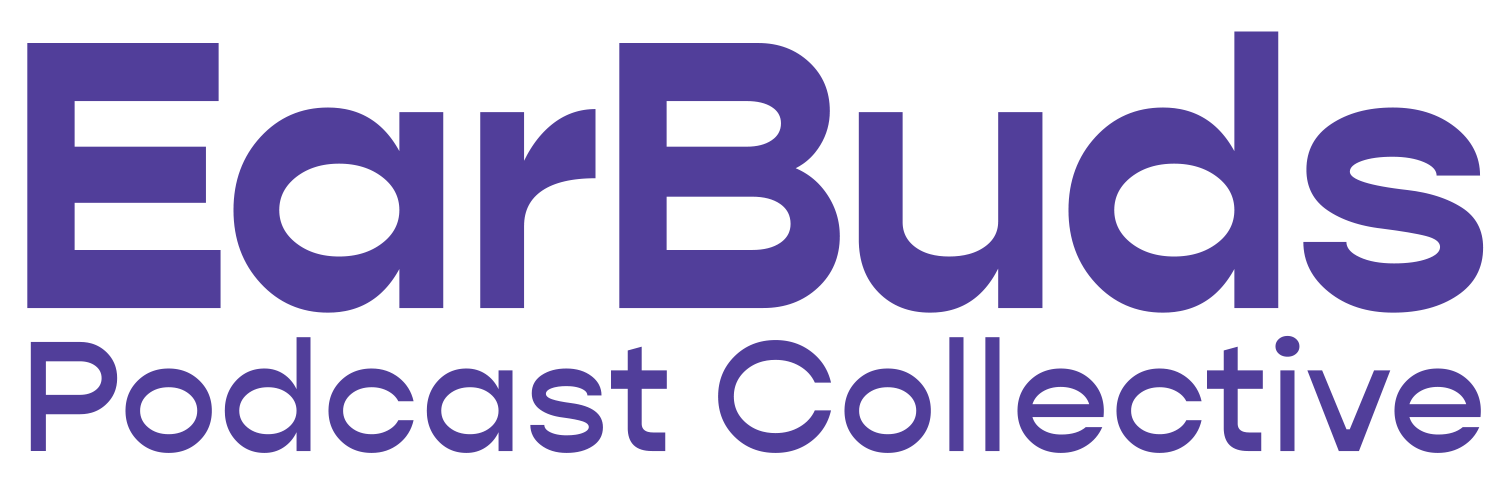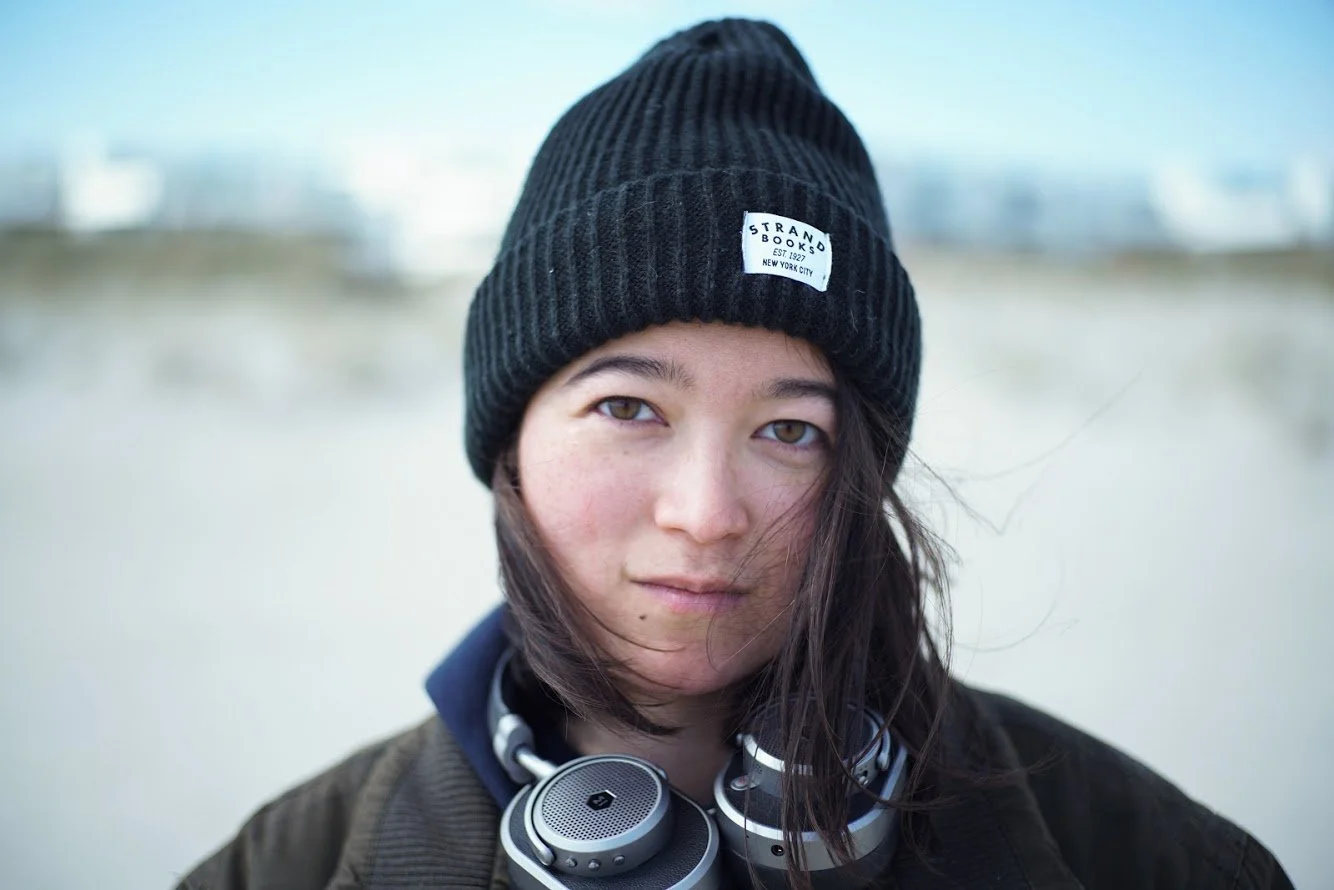[Werking Title] with Eliza Lambert: Erica Huang is a Podcast Prodigy
By: Eliza Lambert-Arnold
The title is no exaggeration. Erica has been making audio-only content since she was seven, when she played a recurring character in Little Einsteins.
Even more impressively, Erica chose to come over to the technical side of things, teaching herself sound design, an arena of audio that’s mostly male-dominated. She’s built up an impressive resume for someone under 30, including a Peabody award and Ambie nominations. Her most recent project just premiered at the Tribeca Festival.
We sit down to discuss the future of podcasting, if sound design is an art or a craft, and what to call a gathering of engineers.
Eliza Lambert: What do you consider to be your first job?
Erica Huang: I have this strange second life. I was a child actor and I did voiceover mostly. I think of that as my first group of jobs, being a voiceover child performer. Then my second life of jobs was probably a podcast that I worked on in college. That was billed as an internship.
It was really just some guy that was like, "I want to make a podcast" and I learned as I was going, editing and a little bit of initial mixing. The one big consistent show that I did was called “Little Einsteins,” and I was a regular on that for two seasons. I did that from when I was seven to maybe 12 or 13. I was on some “Wonder Pets” episodes. I sang in the “Sesame Street” theme song for one of the seasons. I was a Disney, Nickelodeon, children's animation voiceover person.
EL: So you've been in audio since you were how old?
EH: Seven years old. I was going to recording studios from when I was a little baby.
EL: From that first job as talent, what skills do you still use in your day-to-day?
EH: For a while, I saw working in post-production as being a break from that, because I went to college for theater thinking that I wanted to act. There were a lot of reasons that I made that switch, but with some distance from that, a lot of the things that I was doing as a kid were listening to tone of voice or cadence or, matching certain delivery, or understanding language, how we speak and, why we say a thing a certain way. Those very early formative years had a lot to do with what I do now, especially when I'm dialogue editing or working with takes from actors, but also just in the radio podcast thing in general, thinking about storytelling or how to highlight a thing someone has said and why. I do feel like I've kind of been doing the same thing, like, forever.
EL: Given the time that you've had in the industry, how have you noticed it change?
EH: I often hear about it more secondhand because I graduated from college in 2019. 2020, during the pandemic, I was just starting to get more fully into mixing and sound design as my full-time profession. That's when all of the money was flooding the industry. I mean, I don't know any other mixers that are five years within my age. Pretty much everyone I've met is this sort of old guard.
EL That makes sense. And now you've sort of experienced a world where podcasts and people are meeting in person. How has that changed your experience with the industry?
EH: It's strange to be in spaces where people are talking about a time before everything was remote. Most of what I know is remote recording and people on Slack in different time zones, sending each other stuff over Dropbox. The times that I have gotten to sit with a producer in person or do a session, that feels more like before, it's something new for me and something where I realized this thing that I'm missing or this hole that is in the way that I've experienced this industry.
EL: Why did you decide to start a recording studio?
EH: It was honestly David [Herman] who started with the idea. But the idea of having a community space for people to come where you're working and the producer is there and then you finish the tracking and then you chat about it with coffee. It's such a different way of working in it. It feels different. It feels a lot more fulfilling. I feel more in tune or engaged when people are here.
EL: I do think it's the future. Increasingly, you will be in the majority of people for whom remote work as normal. What do you look for in roles, what do you consider to be a good job?
EH: Something that either is going to push me artistically, where they're asking for something, where maybe I don't have as much experience in that particular genre, or the premise... there's going to be a lot of archival tape that I'm going to get to work with and figure out how it works or something. Or I think that the story is really interesting or cool or has some personal resonance for me. There was a time when I really wanted everything that I worked on to change the world or something. Now it's a little bit smaller.
EL: Yeah. Small things change the world. When you think about what makes a good story, from a sound designer perspective, what are you looking for?
EH: Clarity of intent, clarity of perspective. I've started thinking about sound design as being the full experience of listening as opposed to just the things that are added to people talking or whatever else. Something that takes the content and creates a container that best matches the content and best highlights and supports the things that are felt in the tape.
EL: What are some common mistakes you run into when people are trying to interact with you as a sound designer?
EH: A lot of people don't really understand a lot of the process of what I do. Sometimes people will try to solve problems for me without knowing so much. Sometimes people will tell me what they're expecting out of something and I'll have to either push back against the expectation or be like, "OK, I think the reason that you're saying this is because you're looking for this other thing, but this is your way of problem-solving." There's a lot of translating that I do because I'm usually the only person on a team that is doing what I'm doing. Everybody else has different skill sets, which I like. But it can be repetitive.
EL: Yeah. I've often found that sound designers are the most technical people on the crew and there are fewer technically capable people on any given crew, so it becomes more this party of one who's going to explain what all these technical terms mean. But there's also more chance for you to be misunderstood why your no is very real, when you're like, "I actually can't do that." Do you think you've developed a sound that you want to be known for, that you see as uniquely your own?
EH: That's interesting. I come to this question a lot of whether what I do is art or craft and it's something I talked to other sound designers and mix engineers about because it is very technical. It is a craft in a lot of ways but there is this element of artistry and expression. If I had a certain sound, I would feel like what I do is more like art, and that that is my voice coming through. I tend to lean a little more into the camp of what I do being craft, so it's dictated more by the project or the story or the writers' voices.
EL: Given that, where do you find your creativity comes into projects?
EH: Mostly in how to solve or address what the thing needs.
EL: Totally. I think also the idea of it as a craft is really interesting. For people who might be entering the industry and wanting to pursue more of the technical route, what would you recommend as a path?
EH: Just listen to stuff and get curious about it. If there's a moment that really stands out to you, why it's doing that? Break it down into its components. Some of the best answers that I've got about how to accomplish something is when I was like, "What is this specific thing that's happening to a specific person?" I just asked the question to the mixer on [that project] and then they were like, "It's this specific thing that I was doing."
EL: Some people do get degrees for technical training. I didn't get the sense that that's what you did, that podcasting was something you essentially taught yourself. Does that feel fair?
EH: Yeah. I did some sound design for theater classes in college. So I knew my way around a little bit of stuff, but all of the podcasts with production, I either taught myself or I was lucky to have some mentors also, which is how I got started in Pro Tools and all that.
EL: I also get the sense that sound designers are the introverts of an already very introverted art form. What does a community of sound designers look like? Is it basically a library study group?
EH: Yeah, I think we're all definitely not just introverted. There's a reason that it's not our voices. We're all very like specific in what we know and can talk about. It's hyper-focused. I'm on the autism spectrum and I think that that also is, I would guess, not uncommon.
EL: I appreciate the honesty. And honestly, I'd say there are maybe 20 highly-capable sound designers who exist in podcasting, of which you are one. As a community, what do you think are the challenges right now?
EH: Everyone's just recording into their Macbook microphones. There is this expectation that the sound designers solve for the bad audio that people are getting and that their job is to make a thing sound clean and not like it was recorded into a MacBook microphone. That's such a disservice to the people that I work with; what we can do for a story and what we care about. That's probably the biggest challenge is finding shows and teams that are gonna care about getting better audio or care about that process, and then are gonna let us do what we do.
EL: Since you have been doing this since you were seven – which is well over a decade of being in audio, technically – if you were to ever do anything else, what do you think it would be, professionally?
EH: It's a good question. It would probably be something creative but remote. For example, could see myself in working in post-production in some other field or maybe something that involves coding or design or something.
EL: I have a feeling you’ll be sticking around though. Thanks so much, Erica!
Erica and crew


